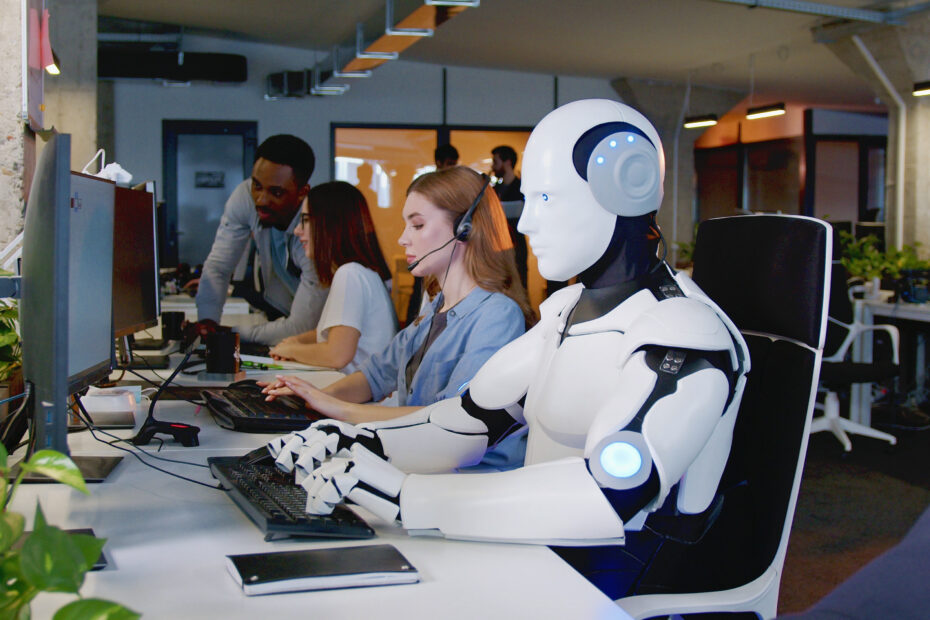The impact of AI on tech careers is nuanced and multifaceted. While AI introduces automation and changes to traditional roles, it also presents new opportunities and avenues for skill development. AI will help create jobs, but there is a possibility some tech jobs will be taken away. This isn’t meant to stir up fear. We want to highlight the importance of adaptability and continuous learning in the face of technological advancements. The effect of AI may indeed lead to the automation of certain tasks traditionally performed by developers, coders, programmers, or engineers. However, this doesn’t necessarily equate to job loss across the board. Instead, it presents an opportunity for professionals to evolve and focus on higher-value tasks that require human creativity, critical thinking, and problem-solving skills.
The rise of AI is reshaping job roles and demands a proactive approach from tech professionals. Those who embrace AI technologies and proactively seek to enhance their skill sets will find themselves at the forefront of innovation and well-positioned to take advantage of new career opportunities. It’s how AI is utilized and what professionals are willing to learn that will set them apart from others. As a developer, coder, programmer, or engineer, it’s what you’re not willing to do or learn that depletes career progression. By staying curious, adaptable, and committed to lifelong learning, tech professionals can not only navigate the changes brought about by AI but also thrive in a rapidly evolving technological landscape.
The impact of AI on tech careers presents both challenges and opportunities. This makes it crucial for professionals to stay informed and adaptable in this dynamic environment.
7 Ways AI may shift tech professional’s current roles:
- Automation of Repetitive Tasks: AI automates routine and repetitive tasks in software development, such as code generation, testing, debugging, and documentation. While this may reduce the need for manual intervention in certain areas, it also frees up time for developers to focus on more complex and creative tasks.
- Shift in Skill Requirements: AI introduces a shift in skill requirements, with greater emphasis on data science, machine learning, and AI-related technologies. Developers and engineers may need to upskill or reskill to stay relevant in the evolving tech landscape.
- Collaboration with AI Systems: Developers and engineers will increasingly collaborate with AI systems and tools in their work. This involves understanding how to leverage AI-powered tools, integrate AI components into applications, and optimize AI algorithms for specific use cases.
- Enhanced Productivity and Efficiency: AI technologies improve productivity and efficiency in software development by automating tasks, providing intelligent suggestions, and streamlining workflows. This allows developers to deliver high-quality software faster and more effectively.
- Focus on Creativity and Innovation: As AI takes over repetitive tasks, developers can focus more on creative problem-solving, innovation, and designing user-centric solutions. This shift enables developers to add greater value by focusing on areas that require human ingenuity and creativity.
- Demand for AI Expertise: With the increasing adoption of AI across industries, there is a growing demand for developers with expertise in AI, machine learning, and related technologies. Developers who possess these skills are well-positioned to capitalize on emerging job opportunities and higher salaries.
- Augmentation, Not Replacement: While AI automates certain aspects of software development, it is unlikely to fully replace human developers. Instead, AI serves as a tool for augmenting human capabilities, enhancing productivity, and enabling developers to tackle more complex challenges.
What’s next for tech careers?
Although AI introduces changes and challenges for developers, engineers, coders, and other tech professionals, it also opens up new opportunities for growth, innovation, and specialization. By embracing AI technologies, upskilling, and adapting to evolving job roles, tech professionals can thrive in the AI-driven future of software development while also leading the way in shaping it. Furthermore, AI offers the potential to automate repetitive tasks, freeing up valuable time for creative problem-solving and strategic thinking. Through continuous learning and collaboration with AI systems, professionals can leverage their expertise to create impactful solutions that drive progress and efficiency across industries.
If you want to learn more about what’s next for tech professionals or what’s new in the technology industry, check out our blog for more information. frontrangesystems.com
Interested in similar topics? Check out our LinkedIn newsletter for more information. Subscribe on LinkedIn
